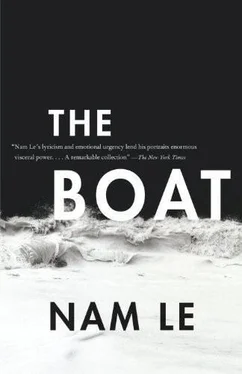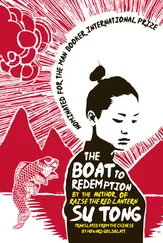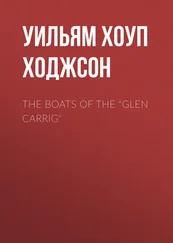Finally, I lifted the bike and rested it on its side stand. We have to go, I said. You ride behind me.
He nodded. I helped him to his feet and onto the motorbike. All the way down the hill he gripped me tightly, like a chica on her first ride.
***
AFTER THAT, OF COURSE, more things changed than just the fact that Hernando and I became friends. You do not kill a policeman and business leader and expect the streets to owe you protection.
El Padre approached me — through a nero whom I knew but did not know to be employed by El Padre — and told me he would protect me. He would take me off the streets, like he took other kids off the onion farms, but he would raise me above these farm kids: I would be given an office job. There was strength in me, he said on the telephone. I could go back to my own barrio, where, with my new status, I would be safe. We are similar, he said. We are both soldados , we do what needs to be done, and we have both lost our fathers to the conflict of Colombia. He said, I will be your benefactor.
Hernando, meanwhile, had disappeared from the gallada . His reputation had increased as a consequence of killing the policeman, and we all assumed he was hiding. Then several weeks later, someone reported seeing him at one of the gringo-led programs in the city that are known to combat violence and drugs and poverty by staging plays in public parks.
I tracked him down and told him about my new job and said that I could ask my agent to give him an office job as well, or at the least, employ him as a soldado . What is this shit? I said, grinning. I gestured at his windowless, white-plastered room, crammed with stacks of cardboard and paper. The room smelled strongly of bleach. Hernando sat behind a scratched steel desk and behind him was a poster depicting a gun with a melted barrel, and underneath, the words: THIS MAKES YOU A MAN?
Forget all this, I said. You can start again. My agent will get you a stainless police record.
Hernando looked at me for a long time. Then he told me he was happy to see me. He had cropped his hair and it changed his face, making his features seem somehow tired, muted. Finally he said, So now you have an office job. What is it like?
I told him about everything: the salary, the bonuses, the weapons. The respect from the barrio. He listened carefully. Then he leaned back in his chair and closed his eyes. I sat down, watching him, wondering what he did in this room every day. He looked older.
But what is it like? he said at last.
I realized he was asking about the killing. At that point, I had not yet received my first assignment and the question irritated me. It is easy, I said.
Who is your agent?
I told him.
He paused again.
What?
You must listen to me, Ron. The man you know as El Padre is a dangerous man.
I laughed, thinking he was joking.
Listen to me.
Of course he is dangerous. He is a legend.
Yes, said Hernando, speaking slowly. And even so, in the game, he is a small player. Which makes him even more dangerous for you. He leaned suddenly forward, the steel desk wobbling under his weight. Listen, Ron, you must stop. You must quit your office job.
You are being funny, no?
I was embarrassed for him. What had the nero said who had found him? That Hernando, looking like a peasant, had instructed him to return to school or he would surely end up the victim of the never-ending culture of violence — at which the nero had applauded and told Hernando to return to his new faggot friends. I had hidden my uneasiness. No one in the gallada would have dared to talk to Hernando in that manner before.
This is what your gringo friends tell you? I asked.
I do not need a gringo to see with my eyes. He looked away from me. But they are right about some things. About El Padre, for instance, who is a dog of the drug lords. He is a man who kills the innocent to protect the rich.
They are not innocent, I said quickly. He is cleaning the streets of the very people you denounce. I caught myself at the last moment from saying "I." His words affected me. I calmed my breathing. You say this when you do not even know him.
He came to me too, Hernando said.
Neither of us spoke for a while. His clothes were faded and worn, his left shoe ripped at the toe. I became conscious of my Nike shoes, my Adidas Squadra jersey with its mesh panels.
It is dangerous for you to say this shit in public.
Hernando said softly, as though to himself, No one should have to do what you do. He stood up and walked around the desk.
They pay you? Where you work, this program?
Hernando smiled. His smile was heavy at the corners of his mouth. I am happy here, he said.
I can help you. I have made almost one million pesos already.
You are like a brother to me, he said simply, and I want to see you safe. He frowned, trying to follow a thought with words. We cannot help each other, Ron. Maybe it is too late. But maybe you can still help your own family.
Maybe you should leave the city, I said.
He smiled again, then leaned forward to embrace me. Maybe, he said.
The next week I used a proxy to buy a house in the barrio next to El Poblado, and moved my mother there in secret. I did not speak to Hernando again until four days ago, when I was given the order by El Padre to assassinate him.
***
WHEN WE WERE STILL LIVING at the old place, and I had nine years and my mother twenty-four, it rained for a week and another two days. School was canceled — the rain so heavy the roads were waist-high with mud, people trapped in their houses. On the tenth day the rain stopped and it felt like a holiday. People wandered outdoors, as though for the first time, and the sun was warm against their skin and the grass and the trees deeper in their color and the faces of strangers flushed like ripe fruit. During this time a militia set up roadblocks along the Avenida Oriental and hijacked a public bus at the exit to our barrio. They raped two of the women and killed my father, then dumped his body and his guitar outside the back alley of my school. The papers said some of the hijackers were police agents.
They broke his guitar? my mother asked when the uniformed men came, their shirts wet at the armpits and their leather shoes splashed with mud. Of course by that time we already knew.
Why? one of them asked. Would you like it? He looked surprised. Maybe –
He stopped talking at his partner's look.
That evening it rained again, heavily, the air a mix of gray and green before the night came down. A couple of neighbors visited — my mother exchanged soft words with them at the front door — then afterward no one else came. All night she did not speak and I did not know what to think. She sat on the brown carpet in the main room, in the dark, with my father's notepapers and sheet music. The gaslight from the kitchen made her face seem misshapen. For hours I sat on my parents' bed with the door open, watching her arranging the papers in careful piles, calmed by how her fingers moved individual pieces from pile to pile, without pause, as though following some special sequence. I watched her fingers and her strange face, and I watched the rain leaking from the thatched kitchen ceiling behind her, and I waited for her to tell me what would happen to us.
He had been a musician, a teacher at an elementary school. His death had been a mistake — everyone told us this. What no one told us was that he, too, had made a mistake: to challenge his attackers — to even draw attention to himself — when he had only his mouth and his hands for protection. What no one told us was that in this city no death is entirely a mistake.
The rain did not stop for two days. My mother stayed cross-legged on the carpet, which, in the rain-dimmed light, changed color to dull orange. She wore the same gray dress and did not eat. On the third morning, a car with mounted speakers drove past and announced that Andres Pastrana Arango had won the presidential election. I remembered that my father liked to call him the hippie candidate. I took some money from my mother's purse and went out into the street to buy some food. I played football with some kids.
Читать дальше











